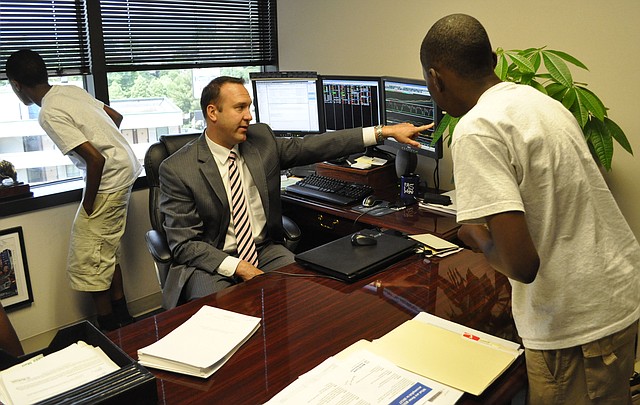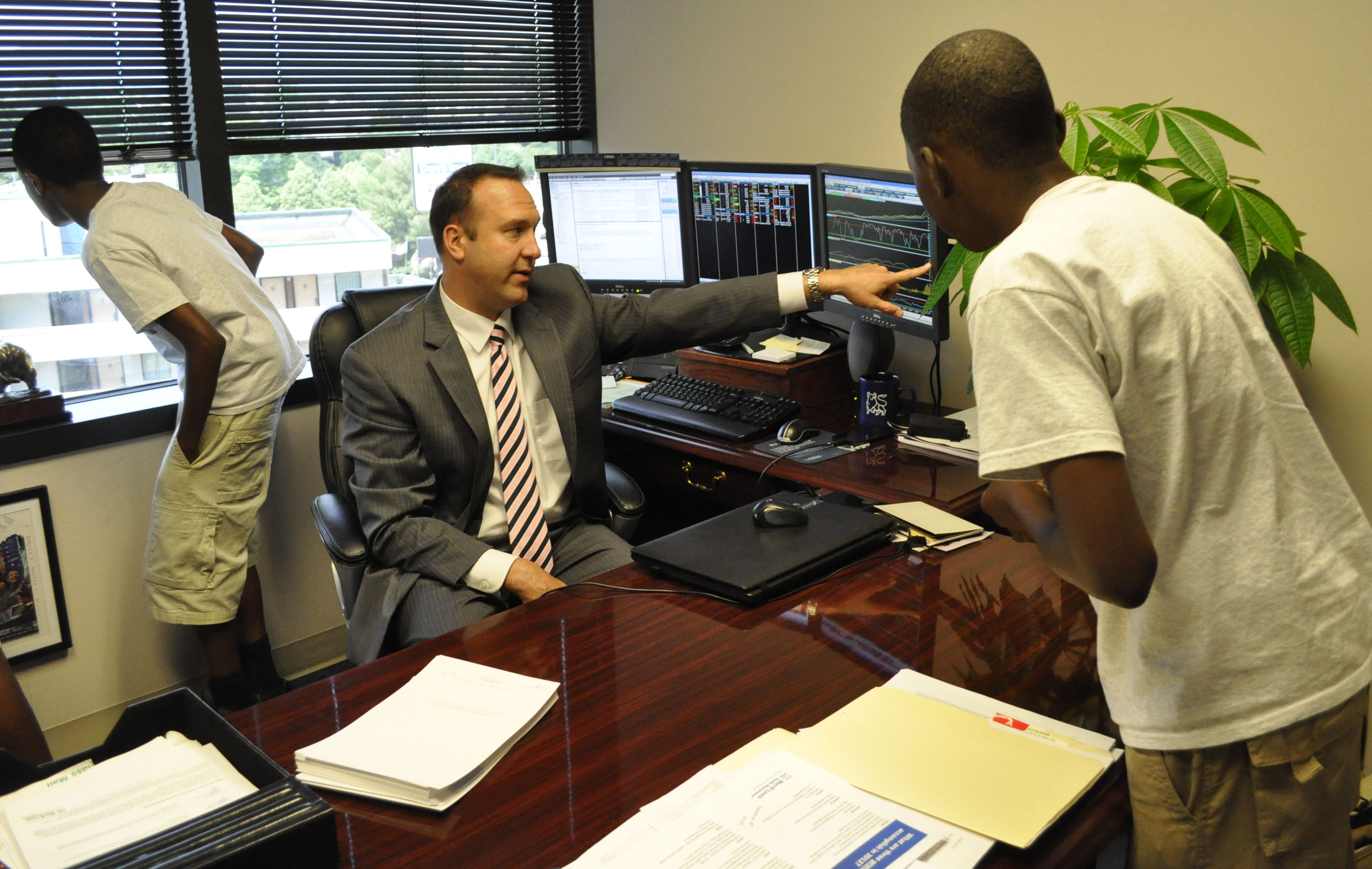Math students check out Stock Exchange
Friday, January 1, 1904
For a seventh-grader, Jada Brunson knows a lot about the New York Stock Exchange.
She can tell you how Apple stocks are prone to take off, how Ralph Lauren stock can be a bit shaky and how there's money to be made if you invest in Aeropostale at just the right time.
Jada and fellow seventh-graders at Orchard Knob Middle School are well versed in the debate between cutting your losses on sinking stocks or holding on in hopes of a rebound. They know that every trade costs a little money, and that timing is everything. And best of all, they've lived the thrill of making it big by buying just the right stocks at just the right time.
Sixteen students from Buddy Sullivan's seventh-grade math courses struck it rich while teamed up to play the Stock Market Game, a virtual stock market competition sponsored by Middle Tennessee State University. In the game, students have $100,000 to invest over a 10-week period. Several of the Orchard Knob teams placed among the best teams for generating some of the highest earnings at the end of the competition.
Using the game, Sullivan said he was able to draw students into the world of math and show them real life applications of what they learn in class.
"What I'm hearing from them is that they see a reason for knowing math," he said. "They can see a real-world use for math and why it's important."
Equally as important, the teacher wanted to open up his students' eyes to a world beyond their own East Chattanooga neighborhoods. A group of students trekked downtown Wednesday to visit with financial advisers at Merill Lynch Wealth Management and learn how real investors use the market daily.
"I'm just really trying to open up their world because they haven't seen some of this. It's not exactly talked about around the dinner table," Sullivan said.
Local Merrill Lynch Vice President Tom Hammell told students how most millionaires they work with shop at places like Sam's Club and don't have lavish homes or cars. Most local millionaires made their fortunes by saving a little at a time and not spending above their means, he said.
"These guys are all just normal people," Hammell said.
That's much different from the picture the kids had envisioned of rich athletes and musicians, whose lavish lives are portrayed on television.
Students shared their trials and victories in the Stock Market Game with the professionals. Sullivan gave the four teams free range on which companies to invest in, though most bought blue chip stocks of companies they were already familiar with like Walmart, Coca-Cola, Apple and Comcast.
Finish Line, Ford and Ralph Lauren proved to be rocky investments that some of the teams ditched.
"Some things you think make a lot of money actually don't," Jada said.
Students examined the short-term and long-term histories of each share price before deciding to buy. But they quickly realized a lot of their success was up to chance and timing.
"It's like gambling. You can win or lose," said Jwan Gamble. "You never know what you're going to get out of it."

